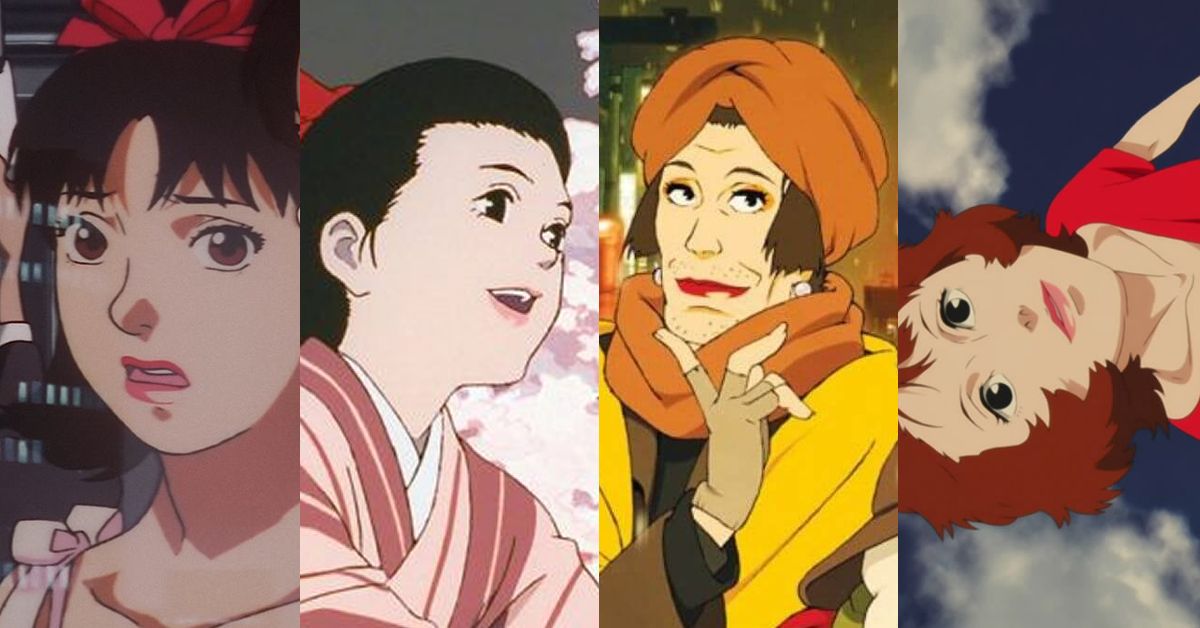Satoshi Kon is one of those names that is royalty in two groups of people, anime fans and film fanatics. Though the director passed away at the age of 46, he managed to construct a strong legacy in animation and film. If his work managed to slip under your radar, here’s some good news! The Smithsonian’s National Museum of Asian Art will be screening all four of his feature films on their website starting this Saturday, March 26th! If you’re new to his films, here’s a small rundown of each of them.
Perfect Blue, a 1997 psychological thriller, based on the novel Perfect Blue: Complete Metamorphosis by Yoshikazu Tekeuchi. The film follows Mima Kirigoe, a member of a J-Pop idol group who wishes to branch out into the world of acting. The woman jumps from a world of pinks and dresses, and into a heavy drama film. While her manager is concerned about her filming a particular scene, Mima assures everyone that she can handle the role. As her world changes, the world of fiction and reality begin to melt together, and Mima begins to spiral. On top of that, she is receiving letters from a stalker, who views Mima leaving the group as a tarnish of her squeaky clean image from her idol days. Perfect Blue has gone on to have a lasting legacy, inspiring directors such as Darron Aronofsky.
Millennium Actress is a 2001 drama that is loosely based on the lives of real Japanese actresses Setsuko Hara and Hideko Takamine. The film is a love letter to Japanese cinema. As a major golden-age studio goes bankrupt, a television interviewer Genya Tachibana and his cameraman Kyoji Ida seek out the aged actress Chiyoko Fujiwara, who was the studio’s best-known star in its golden years. As Chiyoko tells the story of her life, Genya and Kyoji act as stand-ins for the audience, as the film jumps between the actress’s real-life events and the film roles she is most famous for. As a child, Chiyoko crosses paths with an unknown man, an artist on the run from the law for opposing the Sino-Japanese War. She helps the man escape, in exchange, he gifts her a mysterious key which she promises to return to him when they meet again. Chiyoko takes up her career in acting to pursue the mysterious man, and that drive in her is what inspires her performances, from period pieces to dramas, to even an homage to kaiju cinema. Millennium Actress was well-received among critics and fans and won numerous awards. One of the awards the film scored was the Grand Prize in the Japan Agency of Cultural Affairs Media Arts Festival, which is tied with Hayao Miyazaki’s Spirited Away.
Tokyo Godfathers is a 2003 tragicomedy adventure taking place on Christmas Eve. Three homeless people, a middle-aged alcoholic named Gin, a transgender woman named Hana, and a runaway teenage girl named Miyuki, discover an abandoned newborn baby while rummaging through garbage. As the three set off on a mission to return the child to its parents, we learn the origins and scars of the found family. The journey brings the three closer, in a story that is more grounded and less fantasy-based than Kon’s previous two films. Kon himself referred to the film as a “twisted sentimental story.” Tokyo Godfathers was another success among both critics and audiences. Many anime fans now consider the film as a holiday classic to watch every year.
Paprika, a 2006 science-fiction psychological thriller, is based on the novel of the same name by Yasutaka Tsutsu. Paprika is a blend of the hard thriller moments from Perfect Blue, while also taking full advantage of being an animated film. In the future, there is a popular device called the “DC Mini” that allows the user to view the dreams of others. We follow Doctor Atsuko Chiba, who uses the device to help illegally help psychiatric patients outside of the research facility via her alto-ego in the dream world, Paprika. When a terrorist infiltrates the dream world, it begins to blur the line between dream and reality. Paprika was positively received by audiences and has won numerous awards since its release.
The Legacy of Satoshi Kon
Satoshi Kon was already working on his next film after Paprika, Dreaming Machine, when he was diagnosed with terminal pancreatic cancer. Kon chose to spend his final year at home and kept the news of his deteriorating health from the public. The status of Dreaming Machine has gone on and off of hiatus; only time will tell if the film will ever be completed.
Though we do not have Dreaming Machine, there is one other film in the streaming library that will be available for rental, a documentary on his life titled Satoshi Kon: The Illusionist. The film includes interviews with Mamoru Hosoda, Darren Aronofsky, Jérémy Clapin, and Mamoru Oshii. Whether you’re new to the outstanding works of Satoshi Kon, or are looking to dive back in, this will definitely be an opportunity you won’t want to pass up!


